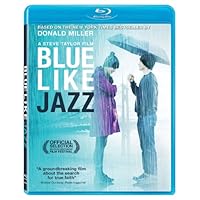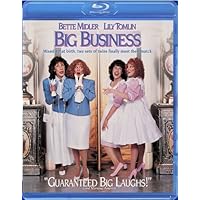
The main stream reviewers really didn't know what to make of this movie. Normal "Christian" movies are supposed to be right wing morality tales that tug at the heart strings and are family friendly. Edgy "Christian" movies are supposed to be filled with lots of sex, or violence, or profanity in order to prove that they are not normal "Christian" movies. This film is none of the above. While not skirting sex, violence, or profanity it doesn't use any of these as a tool to prove its street cred. Just like the book which serves as its source material it is somewhat whacky and off beat, filled with quite a few unforced laughs and real life as it follows the essentially true story of a Texas church boy with a messed up family (and maybe a messed up church) trying to fit in at an Oregon college that really puts the "liberal" into Liberal Arts.
This movie moves at a nice pace. It is well directed and edited with a solid cast. As for the "Christian" part, it may not please the average Evangelical church goer but it could very well sucker punch many a non church goer who thinks they are just watching a gem of a movie that was overlooked by the mainstream machine. I went to the cinema hoping to like this film because I loved the book and because my daughter has a minor role (the Aqua Babe). I was also wondering how in the world they were going to handle certain parts especially the campus confessional. I left extremely satisfied. Aqua Babe was great. The confessional, while quite a departure from the book, was perfect. And this movie could very easily someday become a cult classis.

I'm good at laying my cards on the table, so I will do so right now. I didn't like the book. I generally don't find Donald Miller's writing very compelling, save for Searching for God Knows What. That said, I loved Blue Like Jazz.
Beginning with a surreal (albeit) poorly paced opening of Donald Miller, played with reserve by Marshall Allman, Blue Like Jazz knows exactly where it needs to go. The film starts in Texas, at a fundamentalist church where Miller is content to simply exist without much rigorous thought. After a familial incident, Miller's perfect life is upended and he runs away into the godless Northwest United States to Reed College, where he experiences drinking, drugs, bi-curious girls and social justice. But, he cannot escape his background, or the Deity that seems to follow him.
Blue Like Jazz does not equate itself to being a Christian film. This does not suggest that Christians are not involved or that there is any lack of Christian themes in Blue Like Jazz, but the nature of the film is not sermonizing. Don's encounters with various students, from a dude dressed in a Pope outfit to a girl involved in Christo-centric social justice, showcase the turmoil of a man caught in the whirlpool of messy, post-conservative Christianity in a staunchly secular and hurting world. *For a discussion on "christian films."
I'll confess, I found this to be quite accurate in relation to my own spiritual journey. Having a personal conversation about God at midnight with an agnostic dressed as a beer can comes to mind. Blue Like Jazz touches on this sort of almost transcendental interaction, but also the failure of the church. Not in that the church, as a whole, has failed; rather, in the lives of some people pursuing truth, the church is very capable of providing invisible walls to run into. Blue Like Jazz is honest enough to not avoid the walls, but to show that they can be overcome. We see this in pastors, scholars and parents, both in reality and in this film. Blue Like Jazz never harshly condemns, but rather shows the linger effects of blind trust.
The style of the film is reminiscent of Garden State, with abstract shots of astronauts in space and on earth. Director Steve Taylor, through his use of music and tone, manages to create a genuinely idiosyncratic film. However, the biggest fault of the film is the pacing, with the introduction running far too long. Not much in the way of character development, though there are attempts, until Don packs his bags for college. Once that picks up, the pacing picks up, but there are still instances that bring the film to a grinding halt. Like Don and Pope placing a giant condom on the church steeple. Funny. Necessary in regards to a certain character. But it takes far too long to set up and execute.
Blue Like Jazz is a quirky little film that is filled with honest questions and a genuinely humble ending that is as far from an alter call as one can imagine. However, the ending is far more impactful and quiet than I anticipated, leaving me lost in thought for a long time. For a documentary that more actively engages with the idea, check out Lord, Save Us From Your Followers. Its on Netflix instant.
In many ways, the silence and subtle shift of perspective is far more powerful than an alter call. This is where Blue Like Jazz excels. The point of it is not atonement theory or proclaiming systematic theology. This is not Wayne Grudem or Thomas Oden. This isn't even really Rob Bell or Tony Jones. In some ways, I saw a little N.T. Wright in there. However, the point overall seems to be more towards simply living as one ought to live in order for the gospel to bloom. People see the good deeds other do, and they want to know why. The point is living gospel. Helping the poor. Listening to our enemies. Empathizing with other people's failures.
Possible spoiler:
Don's final comments about being "ashamed of Jesus" ruffled some Christian's feathers. However, the context is powerful in that Don is confessing to a person who suffered sexual abuse at the hands of a powerful man of God. Being "ashamed" is actually the most telling sign of a truly repentant heart. Shame and guilt often showcase our fears and our reaction in tune with the Spirit. Allowing God to move in most mysterious ways.
End possible spoiler.
I'm ashamed of Jesus in that I constantly fail to live up to his perfect example. I'm ashamed of my own failure and the failure of those that profess belief in the same God I love. And that is the pinnacle of Blue Like Jazz. It recognizes the failure of humanity in response to the cross, and the example put forth by both king and servant, Jesus.
The gospel reigns in Blue Like Jazz.
3.5 out of 5.
For the entire review on my blog,
--Nick
Buy Blue Like Jazz (2012) Now
It's been about seven years now since I first experienced Blue Like Jazz. I picked up the book one morning and read through it all in one day. Don Miller's honest and vulnerable story of a very personal journey of faith resonated with me. It was refreshing.
When I was in college, I wrote a very short concept for a Blue Like Jazz film one day during screenwriting class. Later that same year, I found out that Steve Taylor had beaten me to it.
So when Blue Like Jazz finally made it to the big screen, I wanted to be there for opening weekend. Even if that meant a long road trip from the hills of Arkansas to someplace with skyscrapers.
If you want to read film reviews, there is a diverse selection of them available on your local internets. I'm not a critic, and have neither the ability nor the desire to write a proper film review. I'll leave that to the professionals. What I can tell you is that Blue Like Jazz is probably the most meaningful and important films I've seen in a long time. Because in Blue Like Jazz, I see myself.
From Don's nerdy hairdo and tucked-in polo shirts during his Baptist days to his realization that he's hid his faith because he was ashamed of Jesus, I felt like I was looking in some sort of a retrospective spiritual mirror. It's a story about how someone who had never had much experience outside the Evangelical sub-culture is stripped of all the extraneous trappings of his religion until he is forced to confront his own belief in Jesus and decide whether or not it's worth keeping. It challenges assumptions about how Christianity should be practiced, where we should stand in the "culture wars", and what it means to be a follower of Jesus. It shows us the danger of ignoring how we represennt Jesus to our culture. More importantly, it reminds us that Jesus wants us to discard labels agnostic, liberal, gay, religious and simply love people as individuals.
I want to take everyone I know to see the film. To my fellow Christians, I'd say "Look! This is how the `world' sees us. When we act this way, we are misrepresenting Jesus." To those struggling with doubt, I'd say "It's ok. See? You're not alone. But doubt does not have to end in disbelief." And to those who don't know Jesus, I'd say, "I'm sorry. Like Don, I'm sorry for all the times I've failed to show you Jesus. He's not like me at all."
If you get a chance, go watch Blue Like Jazz. Let yourself be carried into Don's story. You may find, like me, that it's remarkably similar to your own.
(read more at)
Read Best Reviews of Blue Like Jazz (2012) Here
I'm deeply biased. I'm one of the over 3,000 people who donated to a kickstarter project to make this film happen. I'm a fan of the book and of Donald Miller.
But I also expected the movie to be terrible.
Most Christian filmmaking is very representative of our decidedly strange subculture. Blue Like Jazz is not. It's obvious that the primary goal here was to make a good film. To that end it is funny, touching, well shot and well paced. There's absolutely an indie aesthetic here, but it's appropriate.
This film exceeded my wildest dreams about what a film adaptation of the book could be.
Want Blue Like Jazz (2012) Discount?
A low-budget independent film by director with only one prior movie, Blue Like Jazz seeks to break every rule for so-called "Christian" films and instead exist as a compelling, realistic story about faith. Despite a few not-so-glaring flaws, the 2012 film Blue Like Jazz rings true, is superbly engaging, and has opened several doors for future filmmakers in the process. Based loosely on Donald Miller's 2003 book of the same name, an anecdotal series of reflections on Christian spirituality, the film almost didn't happen due to lack of interest from Christian film producers (fans of the book came to the rescue in a record-breaking Kickstarter campaign). The material contains a portrayal of life on a real college campus, which anyone who has been to college can attest is never G-rated. The lead character Don (Marshall Allman), who takes elements from Donald Miller's personality and story but is mostly non-biographical, moves from a strongly Southern Baptist Texas environment to Reed College, a highly liberal college in Portland, Oregon. His experiences adjusting to the culture shift, as well as increasing disillusionment with his home environment and family, create a crisis of faith that propels much of the film.
The film doesn't seek to give all the answers, and it certainly doesn't. What it does is tell how messy searching out one's identity is, especially our faith identity. For Christians, there are times and situations that really make us doubt, question, and even reject God. There are times and situations that plunge us into a dark night of the soul. Moreover, there are situations within the church that cut us so deep it is hard to recover. I can rattle off a dozen situations easily where the sinful behavior within churches has caused certain individuals to separate themselves from Christianity, either for a time or for good. Because of this, particular moments within the film hit me with a particular sting. In critiquing the actions of some Christians, the film certainly does not glorify the socially liberal environment, either. The character called "The Pope" represents all that is good and downright sad about nihilistic hedonism. On the other hand, the character of Penny (Claire Holt) represents all that is seemingly good and hopeful about really living out our faith, though not without her own struggles. Both characters may seem to present, at times, oversimplified archetypes of their chosen lifestyles, and yet both characters are also very recognizable to me in individuals I have known myself.
As films go, Blue Like Jazz is not a masterpiece. The production is a little shaky at times, largely due to the small budget and the fact that this is only Steve Taylor's second time directing a feature film (his first, The Second Chance, also has many commendable traits, though is leagues behind this in most aspects). There is some unnecessary animation early on that is more distracting that propelling to the storyline. Some supporting characters are dying to be fleshed out more than they end up being. However, perhaps the reason we wish to have more information on the characters is that what we do see of them is entirely compelling. Allman, Wellborn, and Holt (among others) give their characters the dedication and heart it takes to make a story about a spiritual journey believable.
At the beginning of the film, Don's estranged father tells him that life is like jazz, which never resolves, but Don notes that his dad was wrong and jazz does resolve. The film resolves, too, though not in all aspects. While Don begins to reconcile with his faith, family, and friendships, we're not sure what will happen from here. This is a part of the journey, the part we see at the present. Like life, we don't see it all now. We see little vignettes of the story, but we'll never have the full picture in this life. Perhaps, in that aspect, Blue Like Jazz is most relatable of all.
Save 20% Off
 Johnny English has been 5 years in retirement in Tibet learning the ways of the master. He is called out of retirement for a mission to China to hunt down "Vortex" an assassination group out to kill the Chinese premier. There are 3 keys, or key parts that must be gathered together to have access to a secret weapon.
Johnny English has been 5 years in retirement in Tibet learning the ways of the master. He is called out of retirement for a mission to China to hunt down "Vortex" an assassination group out to kill the Chinese premier. There are 3 keys, or key parts that must be gathered together to have access to a secret weapon.





